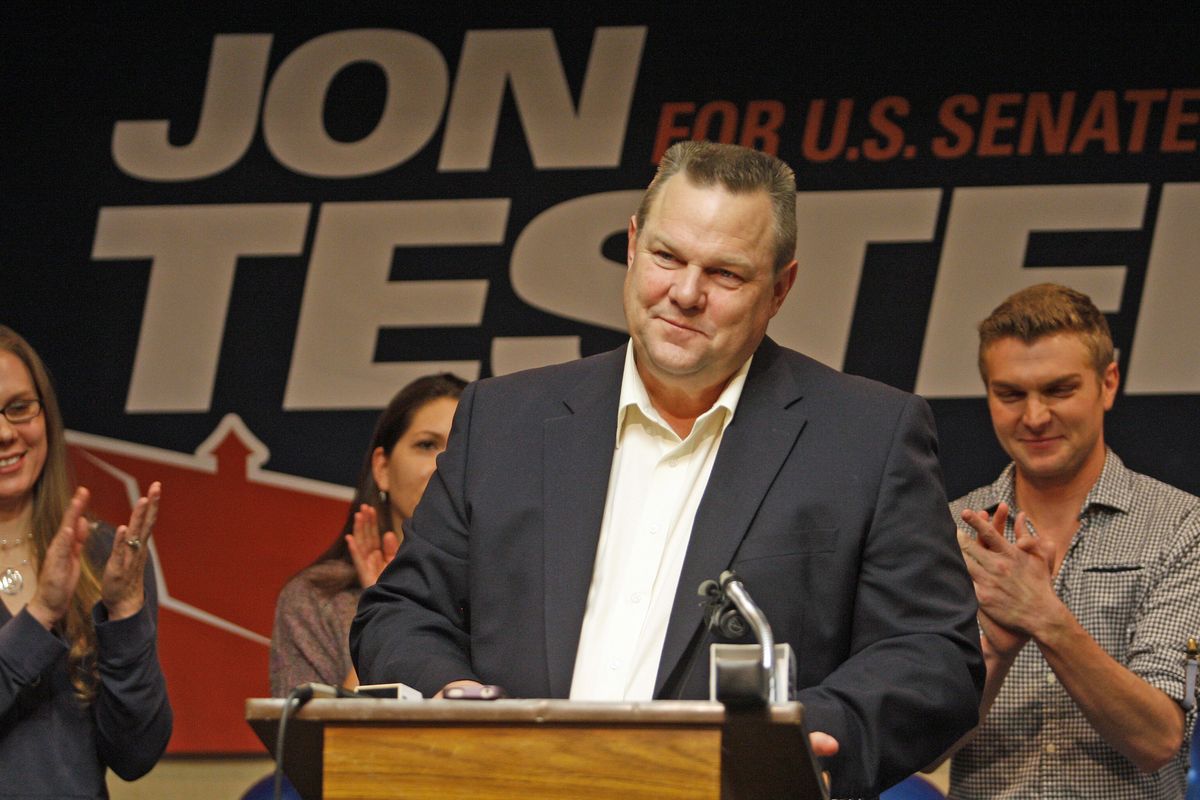Tester retains seat, Bullock in as governor

HELENA, Mont. – U.S. Sen. Jon Tester prevailed Wednesday in a tight re-election battle, beating back nearly two years of attacks for his support of some Obama administration policies to hand Republican U.S. Rep. Denny Rehberg his first election loss since 1996.
The two campaigns, and their third-party allies, flooded Montana airwaves with unprecedented spending on attack ads as both parties considered the race crucial for control of the U.S. Senate. Democrats kept their majority on Tuesday with victories in other states.
Tester was vindicated in his belief that Montana voters wouldn’t go for the attacks that portrayed him as a sellout to Washington, D.C. With most results in Wednesday, Tester was ahead 49 percent to 45 percent.
“I have been waiting a long time to say this. It is over,” Tester told supporters early Wednesday.
Tester had harsh words for the third-party spending that flooded the state with attack ads, and he slammed a U.S. Supreme Court decision he and others blame for bringing more money into politics.
“This victory is our victory. It proves that neither corporations nor billionaires can buy the state of Montana or buy elections. In Montana, we believe that people and their ideas and their values are what governs us,” Tester said.
Tester congratulated Rehberg on his years of public service and offered to work with him on tough problems facing the nation, like the deficit.
“It’s gonna take hard work, it’s gonna take responsible decision-making and it’s gonna take accountability while fighting for the freedoms none of us should take for granted. It’s gonna take working across party lines to do it right for Montana and this country,” Tester said.
Democrats also held onto the governor’s office in Montana as Attorney General Steve Bullock fended off Republican Rick Hil’s attempt at a political comeback.
Bullock ran promising to build on Gov. Brian Schweitzer’s success in state surpluses and a relatively strong economy as the nation struggles to emerge from recession.
Bullock was leading with 49 percent with most of the votes counted. Hill had 47 percent and Libertarian Ron Vandevender just under 4 percent.
“I’m very excited, very energized for what we can do going forward,” Bullock said. “It’s been a long process but we’ve had wonderful support from all over.”
Hill, a former two-term congressman who left office in 2001, said he believed Bullock and Walsh “will do their best to make the right decisions for Montana.”
“When I decided to run for governor two years ago, it’s because I wanted to find solutions to address the issues facing Montanans,” Hill said in a statement. “With the election behind us, I urge leaders in both political parties to set aside their differences and begin working together to develop solutions that will benefit all Montanans.”
Polls had shown a tight race throughout the campaign, ending with an election that was too close to call until the returns from key counties were tallied on Wednesday.
The race came to be dominated in the final weeks with whether Hill should have kept a $500,000 donation from the Montana Republican Party, made after a federal judge ruled state campaign contribution limits unconstitutionally low.
The 9th U.S. Circuit Court of Appeals blocked that ruling six days later, putting the limits back into place pending an appeal.
Bullock sued, saying Hill should be forced to give back the money with the limits back in place. Hill insisted the donation was legal because it was made during that window when there were no limits.
District Judge Kathy Seeley issued a temporary order blocking Hill from spending the money or airing ads paid for with it. Hill’s campaign shut down all advertising, and most of its operations, for several days to comply with the order at a critical point in the campaign.